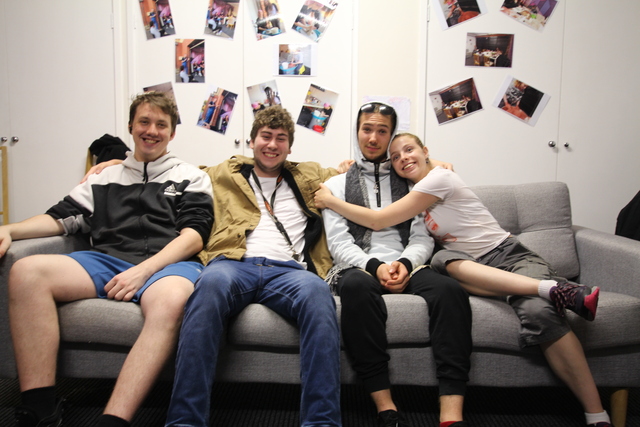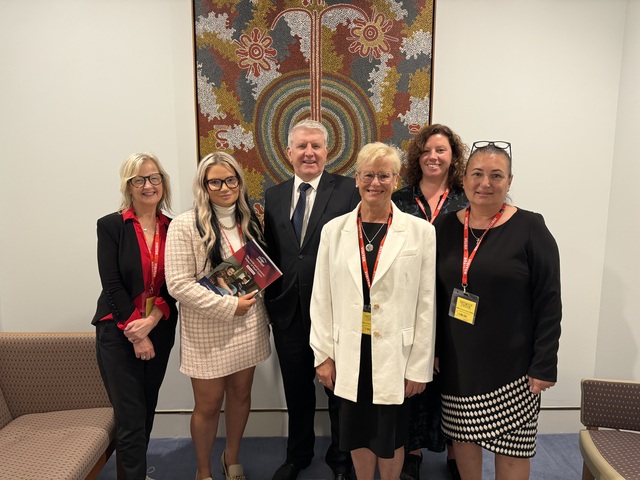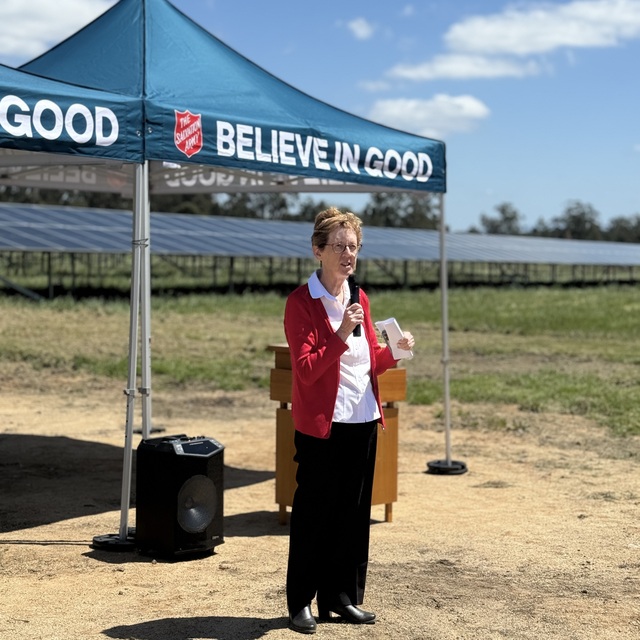Homelessness organisations from around the country, including the outer east’s Anchor, travelled to Canberra last week to call for funding to provide housing for young people.
The Foyer Foundation led the charge, asking the Federal Government to support the building of 10 new youth foyer accommodation facilities, requesting $184 million in the upcoming budget.
Anchor chief executive officer Heidi Tucker visited the Australian capital on 18 and 19 March as part of a consortium of 13 community organisations known as FoyerInvest.
“[The] Lilydale Youth Foyer is operating at maximum capacity [of] 12 young people. A new foyer will help support up to 25-30 more young people,” she said.
“That would be a fantastic increase in our ability to support young people experiencing homelessness or who don’t have a stable homelife.”
The proposal seeks to build 40-bed units in places experiencing high rates of youth homelessness across the country.
Lilydale, in the Australian Bureau of Statistics 2021 census, found that 488 young people were experiencing homelessness across the outer east.
Foyer Foundation chief executive officer Liz Cameron-Smith said despite common beliefs, young people, under the age of 24, actually make up a majority of those who are homeless, equating to 40 per cent of the homeless population across Australia.
“There are too many young people being forced to couch surf, live in cars, in overcrowded or unsafe homes or even on the streets,” Ms Cameron-Smith said.
“Foyers are a proven solution that gives young people who are ready to learn and earn a way out of homelessness.
Although the current proposal only requests funding for 10 Foyers, Ms Cameron-Smith said there are more communities that have been identified as needing this type of accommodation.
“Our partners have identified 16 communities in regional, remote and metropolitan places where a Foyer would make a significant difference to the lives of the young people and their communities.
“An investment of $184 million in this budget will mean we can get to work on delivering 10 more Foyers.”
Ms Tucker confirmed there has been a high demand of support being sought by young people in the outer east, saying two to three are turned away each week from accessing accommodation because the Foyer is full.
“Young people can stay in their Foyer property for up to two years, so vacancy in the program doesn’t become available all that often,” she said.
“We also know there are plenty of young people who will be perfect for this program but aren’t actively seeking out services relevant to them. Young people who live in Healesville and Warburton, are unlikely to leave their area and present to services in Lilydale, or Ringwood.”
Foyer accommodation provides young people aged 16 to 21, who are willing to engage in their own growth and development, as well as community, with education, employment and overall well-being support.
Ms Tucker said it’s about “lifting aspirations of both young people who have experienced disadvantage and those around them” while focusing on their “strengths and talents”.
“The Lilydale Youth Foyer is a safe, secure and affordable setting to live and study, where young people are also concurrently supported as part of the program to develop their skills, independence, and resources needed to achieve their personal goals,” Ms Tucker said.
This has been evidenced by some of the current residents living and thriving at the Lilydale Youth Foyer.
For Connor, who moved around a lot with his dad prior to moving into the Foyer, it was a scary but rewarding change that has helped him achieve goals he never thought possible.
“The Lilydale Youth Foyer is very welcoming. At first you feel awkward because you don’t know anybody. When you move around a lot…you don’t know if you can trust someone, or if they are going to be nice. But it’s been really easy to make friends here,” he said.
“I finished Year 12 and have got the skills to be able to live sustainably. My goal is to find work that helps me to live comfortably. I don’t have to make millions. Just be able to pay my way and live to the best of my abilities.”
While the responsibility is quite big, signing a lease to live at the Foyer and requirement to engage in education or work, Ommy said, “I was excited from the start because I knew I had an opportunity to be somewhere safe.”
Many of the young people who find support within the Foyer have experienced unstable beginnings and potential trauma, whether it be from moving around from place to place or disengagement from school.
“Some of our current Foyer students have experienced rough sleeping or living in tents. Couch surfing is very common. For many, the experience of uncertainty, constant upheaval and moving from motels and temporary accommodation with parents is common,” Ms Tucker said.
“It’s no surprise that young people living like this might struggle to be able to engage in school, or transition into the workforce in an easy way.
“What is most impressive and heroic about these young people is the determination and motivation we see in them to improve their own situation, and their excitement in reconnecting with education or training once they achieve a certain level of safety and stability in a program like Foyer.”
A Foyer Foundation report called Under One Roof found that for every dollar invested in the Youth Foyer program, it generated an additional $6 in benefits and modelling found 65 per cent of young people in a Foyer were in employment on exit, reducing the need for welfare by $47,330 per person.
“Our housing and support system is operating well beyond capacity. Two in three young people seeking medium-term housing support are turned away. Youth Foyers address this gap,” Ms Cameron-Smith said.
“This not only benefits each young person, it also has positive impacts for their families, communities and our economy.”
Ms Tucker said Foyers have evidenced based research to prove the worth they provide to communities but with tens of thousands of young people without permanent housing, more is still needed.
“There are an estimated 40,000 unaccompanied children and young people in homelessness each year in Australia without their families,” she said.
“For those young people with serious drug and alcohol issues and perhaps involvement with the justice system, Foyer provides a positive next step that delivers stability and hope while recovering from these challenges…but they are not for everyone.
“Yarra Ranges is also without any youth refuge or supported crisis accommodation. Young people are getting pushed further and further into the city to get much needed accommodation. This causes further instability and hardship in a young person from the Yarra Ranges.”
The Federal Government budget is expected in May.








